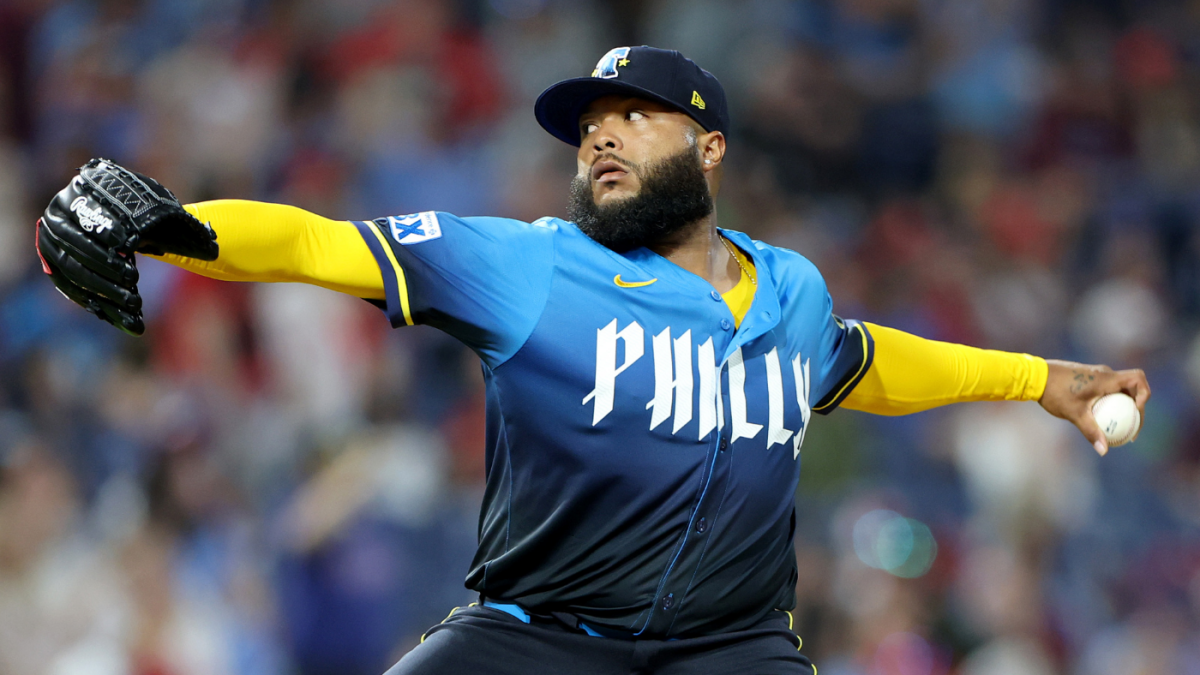The Impact of José Alvarado’s Suspension on the Philadelphia Phillies and Major League Baseball
The sudden suspension of Philadelphia Phillies reliever José Alvarado for 80 games due to a positive test for exogenous testosterone marks a pivotal moment for the player, his team, and Major League Baseball’s ongoing battle against performance-enhancing drugs (PEDs). Beyond the immediate absence from the mound, this development ripples through team strategy, morale, and the broader landscape of sports integrity, underscoring deep challenges in maintaining fair competition at the sport’s highest level.
The Role of José Alvarado in the Phillies’ Bullpen
José Alvarado has established himself as a vital component of the Phillies’ pitching staff, recognized for his formidable velocity and consistency that places him among the elite left-handed relievers in the league. His early-season performance has been instrumental in anchoring the team’s bullpen, boasting a low earned run average (ERA) and a strong win-loss record—metrics that hold significant weight in tight divisional races like that of the National League East.
The suspension abruptly removes one of Philadelphia’s dependable late-inning weapons, triggering an urgent need for the team to adapt. In high-stakes games where bullpen management can dictate outcomes, losing Alvarado represents not just a statistical gap but a strategic dilemma. With playoff hopes on the line, every inning relies on pitchers who can perform under pressure, and the Phillies must now rethink their approach to closing out games.
Understanding MLB’s Anti-Doping Policies and Enforcement
The 80-game ban aligns with Major League Baseball’s Joint Prevention and Treatment Program, a stringent policy designed to curb PED use and preserve competitive balance. Exogenous testosterone is a synthetic hormone that artificially enhances muscle mass and athletic performance, making its use a serious infraction.
Importantly, MLB enforces postseason ineligibility immediately upon suspension, emphasizing the league’s zero-tolerance stance. The Phillies’ official support for these regulations reinforces the collective responsibility held by teams to uphold the sport’s integrity. This incident, like many before it, sends a clear signal that violations bring substantial consequences and that maintaining a clean game remains a league-wide priority.
Strategic and Psychological Consequences for the Phillies
Beyond the obvious loss of pitching firepower, Alvarado’s absence affects team psychology and locker room dynamics. Players may grapple with the disappointment and distraction caused by off-field controversies, potentially eroding morale in a critical phase of the season. Trust within the team, particularly in key bullpen roles, may also face tests as less experienced pitchers are thrust into high-leverage situations.
Management faces the challenge of reshuffling bullpen roles or exploring trades and promotions from the minors to fill the void. This necessity may alter the Phillies’ tactical flexibility and could influence how they approach close games and manage workloads for remaining relievers. The suspension forces the organization to balance maintaining competitiveness with managing the fallout from a significant disciplinary setback.
Broader Implications: MLB’s Struggle Against PED Use
Alvarado’s suspension is a stark reminder of the persistent pressures on professional athletes to perform at peak levels, sometimes leading to risky decisions around banned substances. Each case adds to the narrative of PED challenges within baseball, underscoring the difficulty in eradicating these practices despite ongoing vigilance and testing improvements.
From the league’s perspective, enforcement measures seek not only to punish but deter potential violations, preserving fans’ trust in the authenticity of the sport. Publicized penalties involving prominent players heighten awareness and act as cautionary tales within the baseball community. Furthermore, they underscore MLB’s commitment to transparency and fairness in an era where scrutiny on athlete conduct is higher than ever.
Reflections and Future Directions
José Alvarado’s suspension reverberates far beyond the immediate statistical and tactical implications. It touches on the fundamental values central to professional sports: integrity, fairness, and respect for rules designed to ensure a level playing field. The situation compels the Phillies to demonstrate resilience and adaptability, pushing the team to navigate adversity while continuing their pursuit of playoff success.
For Major League Baseball, this incident reinforces the need for relentless vigilance and ongoing refinement of drug detection and prevention programs. The goal remains clear: protect the spirit of competition and safeguard the health and reputations of athletes. At the individual level, the suspension serves as a powerful reminder of the risks players face when compromising ethics for short-term gains.
Concluding Thoughts: Challenges and Commitment
The 80-game suspension handed to José Alvarado is a significant setback amid the Philadelphia Phillies’ competitive season, but it carries lessons that extend deeply into the culture of baseball. The consequences confront teams, the league, and players with the realities of maintaining sporting honor in a high-pressure environment.
Moving forward, the Phillies must recalibrate their bullpen strategy and nurture team morale to stay competitive. Major League Baseball’s firm response exemplifies a steadfast commitment to combating PED use, highlighting the ongoing struggle to uphold fairness in the game.
Ultimately, while this episode is a moment of disappointment, it stands as a testament to the enduring values that define baseball’s highest ranks—a testament that preserving integrity is as crucial as the wins tallied on the scoreboard.











